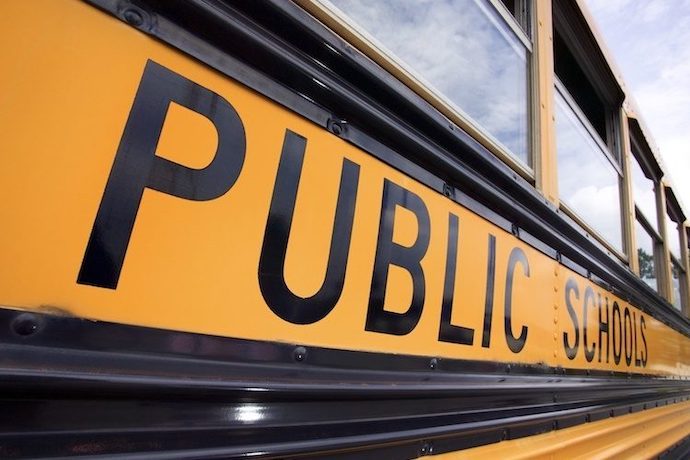Before walking over to the Senate to preside over Donald Trump’s impeachment, this morning Chief Justice John Roberts presided over one of the most significant cases before the Supreme Court, Espinoza v. Montana Dept. of Revenue. Some argue that this is a case about religious discrimination or school choice. It’s not. It’s about religious liberty. True religious liberty.
The case involves a neo-voucher scheme adopted by the Montana legislature. Taxpayers owe taxes to Montana. They are relieved of that obligation if they divert the payment to a scholarship organization that funds private education. It’s a dollar-for-dollar match. One dollar to a scholarship fund is one dollar off your taxes, and 94 percent of these scholarships fund private religious education. Montana appropriated $3 million to cover the anticipated shortfall from forgiving those obligations. The Montana Supreme Court struck down this neo-voucher program because the Montana Constitution says that the state “shall not make any direct or indirect appropriation or payment from any public fund or monies, or any grant of lands or other property for any sectarian purpose or [school].” The court ended the entire neo-voucher scheme, for all private education, religious and nonreligious.
Conservative Christian parents want the U.S. Supreme Court to save the program by declaring that they have a right to public funds for their private religious education. If the Supreme Court agrees, it will be overturning a crucial legal principle. Without that principle, states could compel all taxpayers to fund religious worship and religious education. So, yes, this case does threaten religious freedom. Because the right to be free from that compulsion is religious liberty. The right is possessed by every Montana citizen and taxpayer, not just a select segment of Christian parents. That is the right at issue before the Court today.
If the Supreme Court says that churches and religious schools have a right to taxpayer funds, it will undo one of America’s founding principles and one of our unique contributions to political science. Governments will have the power to force Muslims to bankroll temples and yeshivas; to compel Jews to subsidize Christian churches and Catholic schools; and to oblige Christians to fund mosques and madrassas. The 26 percent of nonreligious Americans will be the hardest hit.
Last week, we celebrated Religious Freedom Day, the day that the Virginia Assembly passed the Virginia Statute for Religious Freedom. In that law, Thomas Jefferson explained that “to compel a man to furnish contributions of money for the propagation of opinions which he disbelieves and abhors, is sinful and tyrannical . . . .” Sinful and tyrannical.
School choice is not an excuse to allow the tyranny the Founders fought against. The Montana Constitution is meant to ensure that “the public school system . . . receive[s] ‘unequivocal support.’” That alone is reason to strike down the neo-voucher program, but so is the unspoken, insidious rationale underlying much “school choice” activism. Some school choice activists blame the erosion of traditional Protestantism in America on the public schools. They “see the weakening of support for public education as a desirable side effect or even a goal of their work,” according to author and journalist Katherine Stewart. They “see our system of public education as a bad thing.”
Sometimes, proponents of neo-vouchers are open about this goal. Kyle Olson helped create and chaired National School Choice Week (which happens to begin on Monday) through its 2011 birth. As its executive director, Olson wrote, “I would like to think that, yes, Jesus would destroy the public education temple and save the children from despair and a hopeless future.” School choice is often a fig leaf for eroding public education to lift up religious education.
This case was never about discrimination; it’s about government-compelled support of religion. Montana’s neo-voucher program violated the religious freedom of every Montana citizen. The Montana Supreme Court righted this wrong and the U.S. Supreme Court should agree. Citizens of every religion and of no religion were coerced into subsidizing religious education with which they fundamentally disagree. This certainly meets Jefferson’s standard of “sinful and tyrannical.”
Simply put, religion must support itself. Benjamin Franklin, who also cautioned about government support of religion, said, “When a Religion is good, I conceive that it will support itself; and when it cannot support itself, and God does not take care to support, so that its Professors are oblig’d to call for the help of the Civil Power, ’tis a Sign, I apprehend, of its being a bad one.” Let the faithful voluntarily support their faith and their religious schools. To involve the state in such decisions violates the religious liberty of all.


